This content has been archived. It may no longer be relevant
When you sit down to plan your lessons for the day, week, or year, you don’t want to think about what you’ll do if tragedy strikes. Grief and pain are as much a part of our lives as joy and learning, but we don’t like to think about them. However, it’s important that we, as teachers, are prepared to deal with grief in the classroom.
Recently, in a teachers’ Facebook group I’m in, the subject came up about celebrating Mother’s Day even though a child in the classroom had lost her mother the year before. We talked about it back and forth, and I realized that many teachers have the best of intentions, but don’t have a plan for how to approach grief in the classroom.
Now, I am not a counselor, but I’m a survivor of tragedy and I’m here today to get very real with you. This is a long post, but it will cover dealing with loss in a student’s family, what to do if a student in your school or community dies, and how to deal with grief in your own life and still be a leader in the classroom.
So, let me say this again: I am not a counselor, but I’m going to approach this from the perspective of someone who lost several immediate family members and friends while in school, as well as someone who has lost students. It’s going to be sad at times, but remember that my goal in sharing all of this is to help you better manage grief in the classroom. If you have a plan, you’ll be able to create a space for catharsis and healing.
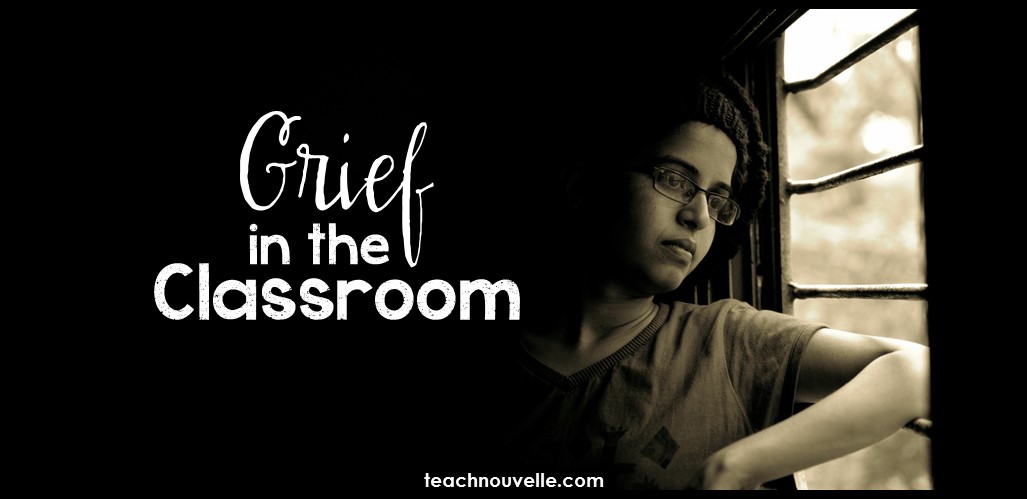
-
When a Student Loses a Family Member
When I was in 3rd grade, I lost my grandfather. Most students’ first experiences with loss will be a family pet or a grandparent. We lived with my grandfather and he’d had cancer, so I’d had time to try and understand what was going to happen. My classmates wrote me cards and my mother bought me my first journal. It went as well as it could have gone.
When I was in 4th grade, I lost my mother. Even though she’d had cancer, I was emotionally unprepared and completely overturned by this loss. There’s a beautiful word for this sentiment in French – it’s bouleversé, and it’s what I was feeling. It is a loss that I have thought about every day for the last twenty years, and it’s taken me each of those twenty years to get to a place where I could share – with you – how much my teachers and school helped me, but also what more they could have done.
When my mother was in the hospital at the end, I spent the last three weeks shuffled from house-to-house while my grandmother stayed with her. I stayed with friends, but I also stayed with teachers. I spent a few nights with each of my 4th grade teachers and their children who were my age. I also stayed with the school principal and her 4th grade niece for a night. After my mom passed, my teachers had my classmates write me cards, much as they had done for my grandfather. I took sessions with an art therapist and was lucky enough to attend a therapy camp for a few days that summer.
Here’s What Worked:
I loved the cards. I wasn’t very popular in 4th grade, but I felt from the cards that everyone cared about my loss. (Later, I’d understand that they’d been required to write them, but I promise that that did not make them any less valuable to me) It’s a good idea to have students write a card because it’s a concrete step they can take to extend their sympathies. Provide students with a script if they need one and brainstorm things to say.
I also felt very supported by my teachers and the fact that they’d let me stay with them – playing with their 4th & 5th grade children had helped distract me for a little while.
Here’s What Could Have Been Better:
Okay, so I was in 4th grade the first time “Your Mom!” jokes were cool. I spent the next two years in tears anytime someone would throw that one around in front of me. It would have been great if my teachers had pointed out to my classmates that that joke would seem pretty insensitive to me. Two years later, when I started retorting “My mom is dead!” in a faux-confident voice, it would have been great if one of my teachers had told me that now I was being the insensitive brat and that my classmates were just trying to be funny kids.
Additionally – and this is very hard for me to write –, I wish someone would have made me write down good memories of her. I was so young, and it hurt so much to think of her in those first few years. As an emotional defense, I avoided thinking of her and pushed away every memory I had. Now, many of those memories are gone. Encourage your students to write down their very best memories, a little at a time, even though it hurts.
-
When Students Lose a Classmate
When I was a sophomore in high school, two of my fellow Drama Club members were in an awful car accident the week before the Regional Acting Competition. The driver was terribly injured, and the passenger was in a coma.
We made the decision as a club to still attend Regionals because it’s what we knew they would have wanted. These were bright and beautiful young women – stars in our Club and community – and my very good friends. When we arrived at the hotel the night before Regionals, our chaperones pulled us into one hotel room and broke the news – Chelynne had died.
We were devastated. I remember our director crying, and I remember two students who had graduated showed up to support us and hold us and love us. In the weeks that followed, we had counselors visit our club meetings and we threw a huge memorial service for Chelynne. And, you know, because we were artistic souls, there were poems and songs and slide shows and pretty much everything you could imagine happening in that school at that time.
Here’s What Worked:
We came together as a school community for the memorial service, and it was our chance to support Chelynne’s family and unburden our hearts. It was optional for the student body, meaning that anyone could attend but they weren’t forced. In the years that followed, I attended other memorial services for students, and they followed the same pattern. Memorial services create space that allows for sharing and healing.
I also really appreciated our director being open about her grief. She mourned with us, and it was good for our community to share in that.
Here’s What Could Have Been Better:
I have this memory of the school counselor coming into Drama Club on two different occasions, and trying to talk to us or coax us into sharing. Here’s the issue: none of us liked her. We didn’t like her, and therefore the things she was saying didn’t carry as much weight. And I’m sure she was saying caring, necessary things and imparting great wisdom. If you’re going to have a counselor speak with your students, please make sure your students like the counselor enough to listen to what she has to say.
*I’m not going to touch on the more specific aftermath of suicide, but here are some resources for working with your students and school after a teen suicide:
Guidelines for Schools (SupportAfterSuicide.org)
Tips for Teachers Following Student Suicide (Headspace.org)
Also, you can read this fabulous post by Angie Kratzer about why every teacher should watch (and know that their students are watching) 13 Reasons Why.
-
When You Lose a Loved One
I have been so lucky not to have lost a loved one as a teacher, but here are my general thoughts. Above all else, your students are learning from how you handle every situation. This does not mean you have to “be strong” for them. Conversely, I’d say that you can show them appropriate ways to manage grief.
- Practice self-care (eat, sleep, stay hydrated), even if you need to enlist a colleague to hold you accountable
- Share your coping techniques with your students. It doesn’t need to be constant, but when you’re ready to tell them about your loss, be ready to talk about how you journal/meditate/etc.
- Prepare them for raw emotions. Let them know that you’ve endured a loss, and that you may have some raw moments as you grieve. Be open and honest, and they will rise to understanding.
Find more resources for trauma-informed teaching
Lastly, let’s talk about The Day After Loss as we wrap up the subject of grief in the classroom.
Spend some time now contemplating how you’ll handle grief in the future. Imagine your students come to class one morning, having learnt of the death of a classmate overnight:
- How will you fill your class period? What materials will you provide to students?
- What level of noise and movement is acceptable to you? How will you gently let your students know?
- How will you create therapeutic spaces for healing & catharsis? How will you encourage students to share when they’re ready?
- How will you prepare all students for the ways in which people react differently to loss? (industry, lethargy, stillness, melancholy, etc.)
- What will you say to disrespectful students?
- How will you practice self-care and management of your own emotions?
May you make a plan for grief in the classroom, and may you never have to use it.
Best,

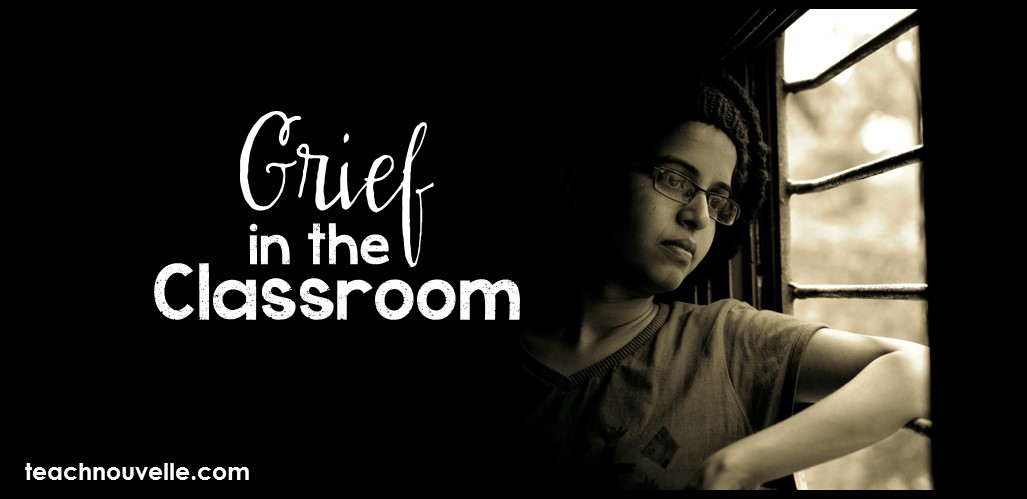
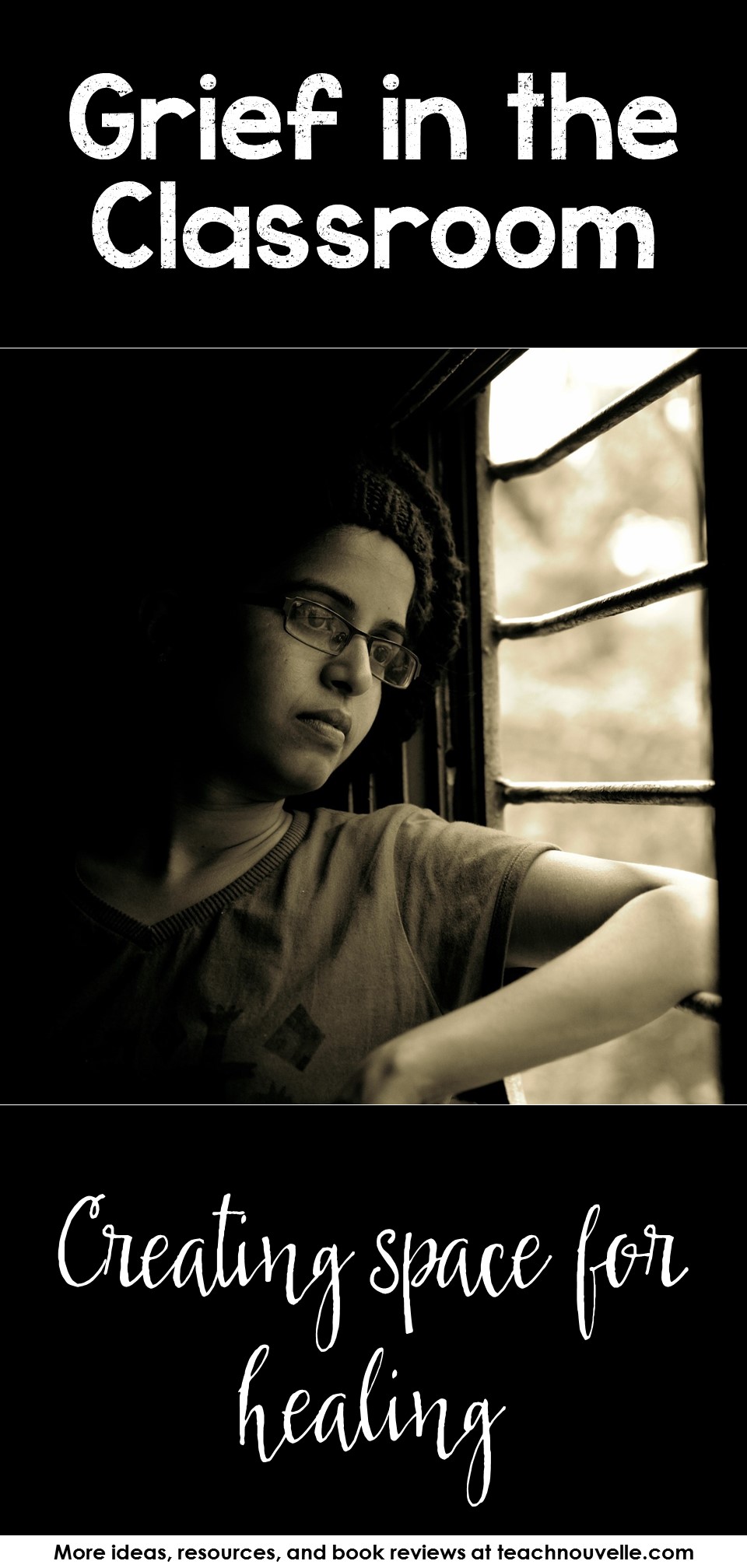
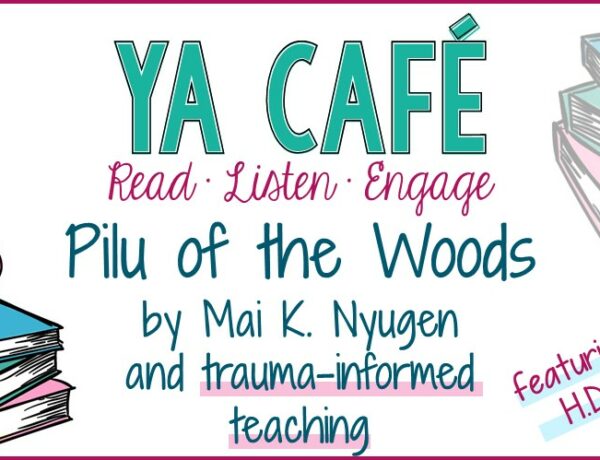
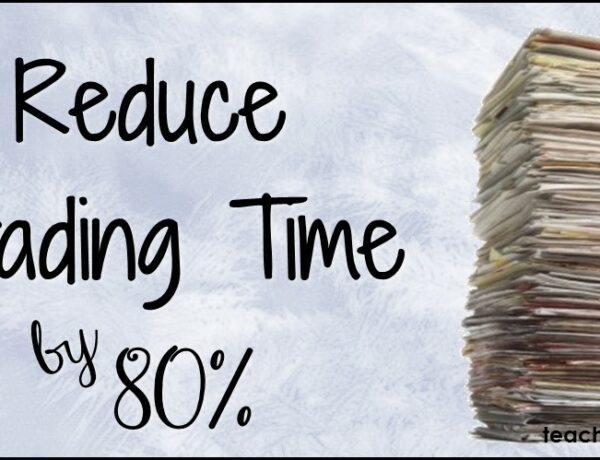
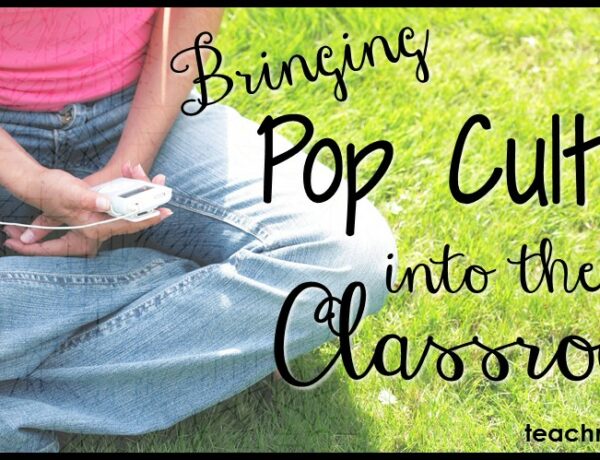
5 Comments
YA Cafe Podcast: Picture Us in the Light
April 12, 2018 at 9:28 am[…] about my experience as both a grieving student and a grieving teacher, and you can read it here: Grief in the Classroom. This article details what I received in each situation and what I wish I’d received from […]
YA Cafe Podcast: Pilu of the Woods
April 11, 2019 at 8:01 am[…] check out Danielle’s cornerstone article, “Grief in the Classroom,” which shares practical tips for teachers based her experience with death as a student and as an […]
YA Cafe Podcast: I'm Not Missing
April 17, 2019 at 1:45 pm[…] like my more serious reflections on grief and how teachers can handle it in the classroom, here’s my epic blog post on the subject of grief. […]
Saja
June 4, 2019 at 12:46 pmThank you for posting this. I am so sorry for the losses you’ve experienced. My mom died when I was very much older, but I can tell you that I felt like I was 5 again. Of course, that’s not the same as being 5. She had had a lot of health problems throughout the years. That same year I had lost both of my parents and my beloved grandmother. I was in little shape to ensure my two kids had more than what they needed to survive. How I wish my daughter’s high school had stepped in with resources for her during that horrid year! She stumbled through it all and is in college doing well. But boy, I had wished we had support.
Danielle Hall
June 4, 2019 at 1:16 pmI’m so sorry for your losses and that you and your daughter didn’t have that support! It’s terrible at any age. 🙁
I truly think that most teachers just have no idea where to start (or if it’s better to stay out of it)… hopefully, we can change this in our own classrooms.